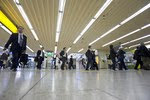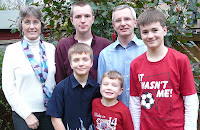 So Japan are out of the World Cup. The dream of reaching the semi finals is over. It's been fascinating to watch both the unfolding of events in South Africa as well as the reaction at 'home'. The team has performed much better than anyone expected. And had it not been for one penalty miss, they could have been in the quarter finals. One of the enduring images of the Japan campaign is the ever-expressionless face of the manager Okada. Rarely did you see a smile. But he had his game plan carefully worked out and the team functioned as instructed. After last night's defeat as always happens at the end of a match, the manager is interviewed immediately by the Japanese media. He took responsibility - 'I was not strong enough'. Some players were also interviewed and as always were gracious in defeat. All sports people in this country are able to speak competently. Then the team went over to bow in front of their fans and express their thanks. People back in Japan had really got behind the team. It's a shame they are out but the players have done their country proud and will return to a great welcome. And that is more than can be said for some other countries. Amazing to think how far Japan has come in football when the professional league only started here in the 1990s. Team spirit, discipline, technical skill - all very Japanese characteristics and all very much on display by the 2010 Japan team. Well done guys.
So Japan are out of the World Cup. The dream of reaching the semi finals is over. It's been fascinating to watch both the unfolding of events in South Africa as well as the reaction at 'home'. The team has performed much better than anyone expected. And had it not been for one penalty miss, they could have been in the quarter finals. One of the enduring images of the Japan campaign is the ever-expressionless face of the manager Okada. Rarely did you see a smile. But he had his game plan carefully worked out and the team functioned as instructed. After last night's defeat as always happens at the end of a match, the manager is interviewed immediately by the Japanese media. He took responsibility - 'I was not strong enough'. Some players were also interviewed and as always were gracious in defeat. All sports people in this country are able to speak competently. Then the team went over to bow in front of their fans and express their thanks. People back in Japan had really got behind the team. It's a shame they are out but the players have done their country proud and will return to a great welcome. And that is more than can be said for some other countries. Amazing to think how far Japan has come in football when the professional league only started here in the 1990s. Team spirit, discipline, technical skill - all very Japanese characteristics and all very much on display by the 2010 Japan team. Well done guys.
Wednesday, June 30, 2010
The dream ends
 So Japan are out of the World Cup. The dream of reaching the semi finals is over. It's been fascinating to watch both the unfolding of events in South Africa as well as the reaction at 'home'. The team has performed much better than anyone expected. And had it not been for one penalty miss, they could have been in the quarter finals. One of the enduring images of the Japan campaign is the ever-expressionless face of the manager Okada. Rarely did you see a smile. But he had his game plan carefully worked out and the team functioned as instructed. After last night's defeat as always happens at the end of a match, the manager is interviewed immediately by the Japanese media. He took responsibility - 'I was not strong enough'. Some players were also interviewed and as always were gracious in defeat. All sports people in this country are able to speak competently. Then the team went over to bow in front of their fans and express their thanks. People back in Japan had really got behind the team. It's a shame they are out but the players have done their country proud and will return to a great welcome. And that is more than can be said for some other countries. Amazing to think how far Japan has come in football when the professional league only started here in the 1990s. Team spirit, discipline, technical skill - all very Japanese characteristics and all very much on display by the 2010 Japan team. Well done guys.
So Japan are out of the World Cup. The dream of reaching the semi finals is over. It's been fascinating to watch both the unfolding of events in South Africa as well as the reaction at 'home'. The team has performed much better than anyone expected. And had it not been for one penalty miss, they could have been in the quarter finals. One of the enduring images of the Japan campaign is the ever-expressionless face of the manager Okada. Rarely did you see a smile. But he had his game plan carefully worked out and the team functioned as instructed. After last night's defeat as always happens at the end of a match, the manager is interviewed immediately by the Japanese media. He took responsibility - 'I was not strong enough'. Some players were also interviewed and as always were gracious in defeat. All sports people in this country are able to speak competently. Then the team went over to bow in front of their fans and express their thanks. People back in Japan had really got behind the team. It's a shame they are out but the players have done their country proud and will return to a great welcome. And that is more than can be said for some other countries. Amazing to think how far Japan has come in football when the professional league only started here in the 1990s. Team spirit, discipline, technical skill - all very Japanese characteristics and all very much on display by the 2010 Japan team. Well done guys.
Monday, June 21, 2010
Fathers' Day
 Yesterday was Fathers' Day in Japan. Unlike Mothers' Day, it falls on the same day as the UK so we manage to remember both. It is well known that many men in Japan work long hours, often leaving home early and getting back late at night. Time for kids to see their dad can be very limited. However, at least in our part of Japan, things seem to be changing; more and more dads are able to spend time with their families in the evenings or at least at the weekends. It's not easy though to leave work before others. And then there may be pressures to spend time with work colleagues even after that. We are getting to know quite a number of dads through Calum's involvement in football. There is a good cameraderie there and great to see many of the dads around. It's always a challenge for churches here to reach men and to see whole families be part of the church family. We are wondering what we can do to reach men. To begin with that will involve building relationships with men on their territory, probably involving sport, leisure, food or any combination. Yesterday we had a man come along to our service. Next week we will have another young guy coming who has already been a few times. But not all men would feel at all comfortable in doing that. We need to be creative in finding ways to make contact with men and gradually be able to share with them the message of the gospel.
Yesterday was Fathers' Day in Japan. Unlike Mothers' Day, it falls on the same day as the UK so we manage to remember both. It is well known that many men in Japan work long hours, often leaving home early and getting back late at night. Time for kids to see their dad can be very limited. However, at least in our part of Japan, things seem to be changing; more and more dads are able to spend time with their families in the evenings or at least at the weekends. It's not easy though to leave work before others. And then there may be pressures to spend time with work colleagues even after that. We are getting to know quite a number of dads through Calum's involvement in football. There is a good cameraderie there and great to see many of the dads around. It's always a challenge for churches here to reach men and to see whole families be part of the church family. We are wondering what we can do to reach men. To begin with that will involve building relationships with men on their territory, probably involving sport, leisure, food or any combination. Yesterday we had a man come along to our service. Next week we will have another young guy coming who has already been a few times. But not all men would feel at all comfortable in doing that. We need to be creative in finding ways to make contact with men and gradually be able to share with them the message of the gospel.
Friday, June 18, 2010
The way of the gods
Tuesday, June 15, 2010
World Cup fever
 We'll take a break from commenting on the religious atmosphere around here and move on instead to football. It is after all World Cup time. Actually some people would see football as a kind of religion anyway. Football (or soccer as they refer to it here) is not traditionally a Japanese sport. They excel more in baseball, sumo and the martial arts. Yet Japan has once again qualified for the World Cup finals and had their first outing last night. The result - a 1-0 victory over the mighty Cameroon. And that's been enough to send the Japanese media into a frenzy. Star striker Keisuke Honda poked the ball over the line and the commentators were marvelling over such a 'brilliant goal'. It was replayed constantly during the half-time interval. This is Japan's fourth appearance in the World Cup finals and they are aiming for the semi-finals. The manager says that has nothing to do with the fact that rivals Korea reached that stage eight years ago when the finals were held in Japan/Korea. There is little hope of that but the victory last night is getting the fans going. It's a talking point. A church near us is even holding an outreach event on the night of the next match showing the game live on a big screen in the church. For us, we are more and more getting to know Calum's football friends and their parents as we gather regularly to cheer on the team. That gives us natural opportunities to chat and befriend people and we hope in time will lead on to deeper conversations. Meanwhile we will join the millions here in rooting for the Blue Samurai in their next match.
We'll take a break from commenting on the religious atmosphere around here and move on instead to football. It is after all World Cup time. Actually some people would see football as a kind of religion anyway. Football (or soccer as they refer to it here) is not traditionally a Japanese sport. They excel more in baseball, sumo and the martial arts. Yet Japan has once again qualified for the World Cup finals and had their first outing last night. The result - a 1-0 victory over the mighty Cameroon. And that's been enough to send the Japanese media into a frenzy. Star striker Keisuke Honda poked the ball over the line and the commentators were marvelling over such a 'brilliant goal'. It was replayed constantly during the half-time interval. This is Japan's fourth appearance in the World Cup finals and they are aiming for the semi-finals. The manager says that has nothing to do with the fact that rivals Korea reached that stage eight years ago when the finals were held in Japan/Korea. There is little hope of that but the victory last night is getting the fans going. It's a talking point. A church near us is even holding an outreach event on the night of the next match showing the game live on a big screen in the church. For us, we are more and more getting to know Calum's football friends and their parents as we gather regularly to cheer on the team. That gives us natural opportunities to chat and befriend people and we hope in time will lead on to deeper conversations. Meanwhile we will join the millions here in rooting for the Blue Samurai in their next match.
Monday, June 14, 2010
Death and life
Tuesday, June 8, 2010
Be my witnesses...
 When you come to a new land as a missionary, there is much to learn. Language is a top priority at the beginning. Then there is the culture. The ways of doing things. The customs. The food. The list could go on and on. We have now been here almost twelve years and are still learning - every day! Last year we moved to this area to start a new church. And of course that does not happen in a vacuum. We live among a community of people, in a particular setting, with a history and local traditions. One part of that setting is the religious aspect. We have mentioned before that our house is opposite a huge graveyard. Hiragishi was once on the suburbs of Sapporo so it was a good place to site the resting place for the dead as well as house the Sapporo crematorium (which is now our local swimming pool!) There are several funeral halls round about where we live. There is a large Buddhist temple nearby and a smaller one just along the road from our house. On the main street around ten minutes walk from where we live is a large building known to everyone in the area, home to what is called the PL (Perfect Liberty) Church, which has nothing at all to do with church and is one of the many new religions in this country. That is our context. And that makes it hard to make headway here. Yet it also points to the necessity of there being a witness to Jesus in this area. In subsequent blogs, we will share a little more about the religious context in which we find ourselves and the challenges that presents.
When you come to a new land as a missionary, there is much to learn. Language is a top priority at the beginning. Then there is the culture. The ways of doing things. The customs. The food. The list could go on and on. We have now been here almost twelve years and are still learning - every day! Last year we moved to this area to start a new church. And of course that does not happen in a vacuum. We live among a community of people, in a particular setting, with a history and local traditions. One part of that setting is the religious aspect. We have mentioned before that our house is opposite a huge graveyard. Hiragishi was once on the suburbs of Sapporo so it was a good place to site the resting place for the dead as well as house the Sapporo crematorium (which is now our local swimming pool!) There are several funeral halls round about where we live. There is a large Buddhist temple nearby and a smaller one just along the road from our house. On the main street around ten minutes walk from where we live is a large building known to everyone in the area, home to what is called the PL (Perfect Liberty) Church, which has nothing at all to do with church and is one of the many new religions in this country. That is our context. And that makes it hard to make headway here. Yet it also points to the necessity of there being a witness to Jesus in this area. In subsequent blogs, we will share a little more about the religious context in which we find ourselves and the challenges that presents.
Tuesday, June 1, 2010
Sports Day
Subscribe to:
Posts (Atom)




